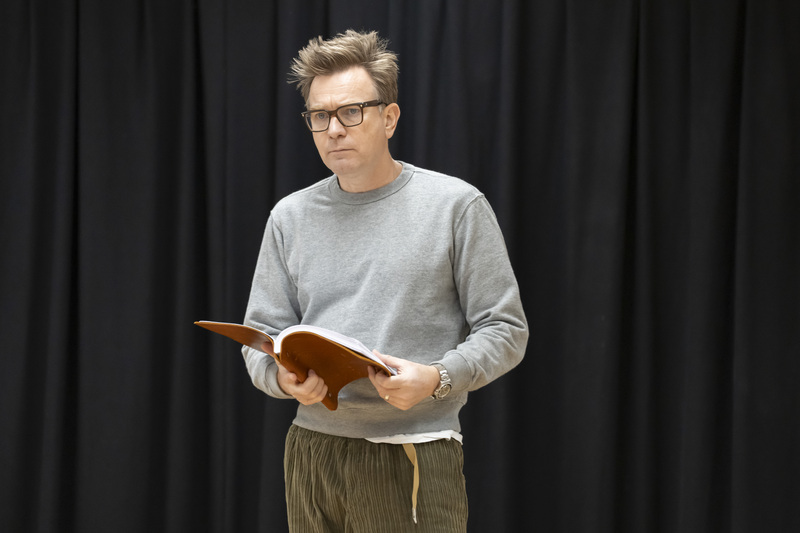This is the setting for his version of Chekhov’s Three Sisters. It’s an improbable relocation but it surprisingly works to redefine that melancholy and sadness that befalls the three sisters in Chekov’s masterpiece and tell a fascinating story from Africa’s war torn past.
The play is set in a small village in Owerri and opens three months before the Biafra war. The three sisters Lolo (Sarah Niles), Nne Chukwu (Natalie Simpson) and Udo (Rachel Ofori) reflect on their father’s death and their removal from Lagos. They yearn to return there, as Chekov’s three sisters yearn for Moscow. It is a yearning for sophistication and lost happiness.
The stage is quickly and hilariously peopled with servants, male relatives and soldier suitors. Their hopes for the future building of a new nation are intoxicating. That atmosphere encourages the sisters to pursue new and dangerous relationships, especially that between Dimgba (Toby Bamtefa), the sisters’ feckless brother, and Abosede Ronkę Adékoluęjo) who is a Yorùb not an Igbo.
In Chekov’s Three Sisters, circumstances do not really change over time which leads to a general gathering of gloom: in Ellams’ play, which covers three years of the Nigerian conflict, we witness disillusionment, growing ethnic hostilities and eventually the family shattered by Biafra’s failure to gain independence. A lot happens beyond the walls of their home. Where the play is strongest is in the way we see how war impacts on this family.
Inua Ellams is a poet and he writes with passion about the bloody suffering in Nigeria. Power has shifted after the war and Abosede, a Nigerian, is emboldened by the Nigerian victory to take control. In a shocking scene of cruelty, she viciously dismisses the family servant NMA (Anni Domingo) and succeeds in taking control of the family property. Ikemba (Ken Nwosu), the military commander and Nne Chukwu’s love, movingly tells of the tragedy that befalls his family and home. He says forlornly that he has to imagine ‘a better future growing from you sisters here in Owerri, to the whole world’.
The play is long but it is visually impressive with a strong design by Katrina Lindsay. The beauty of the last scenes set in the open bloodstained grasslands will live in the memory. Nadir Fall directs with surefooted authority and the acting is strong throughout the company.
Especially impressive is Sarah Niles’s Lolo as she struggles to make sense of the futility of war and colonial oppression. Ken Nwosu as Ikemba is touching in his realisation that he does not make a good soldier and that he must look to his family and sacrifice his own happiness. Âonke Adékoluęjo as the ghastly Abosede gets the laughs.
It is a hard-hitting, challenging political play and the blame for the troubles in Nigeria is firmly laid at the door of the British. If it becomes didactic at times, it never loses sight of the human tragedy. It is an intelligent reworking of the original Russian play but it stands on its own as a story that should not be forgotten.
The audience spontaneously gave the opening performance a standing ovation. I urge you to see it.

 Inua Ellams follows his hugely successful Barber Shop Chronicles at the National Theatre with a new play about those caught up in the Nigerian/Biafra war.
Inua Ellams follows his hugely successful Barber Shop Chronicles at the National Theatre with a new play about those caught up in the Nigerian/Biafra war.



 Written when she was just 19, Shelagh Delaney’s groundbreaking post-war, working-class drama A TASTE OF HONEY embarks on a well-deserved West End transfer at Trafalgar Studios, following its run at The National.
Written when she was just 19, Shelagh Delaney’s groundbreaking post-war, working-class drama A TASTE OF HONEY embarks on a well-deserved West End transfer at Trafalgar Studios, following its run at The National.